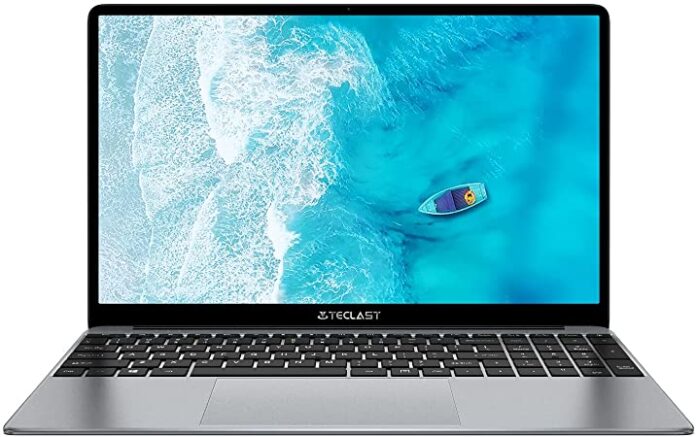Computer prices riding on high exchange rate, shipping costs
By Jeph Ajobaju, Chief Copy Editor
All brands of computers have gone up in price in the past one year riding on the crest of soaring naira exchange rate, shipping costs, and general inflation in a country that depends on imports for nearly all consumer goods.
And several Nigerians are lamenting over the hike in computer prices.
Adetayo Adebola, a PhD student, bought 13-inch MacBook pro with touch bar (2.0GHz quad-core 10th generation intel core i5 processor, 512GB) at SLOT in Ikeja for about N500,000 last year. Today, it costs about N867,000.
Adetola Akamo, an investment analyst, bought a 360 degree Lenovo laptop (8gb ram, 256gb tom, corei5) at SLOT in March 2021 at N360,000. He found out this year it now goes for N550,000.
“I needed to buy the same laptop for my sister and was shocked that the price had gone up by such an amount barely a year later,” he told Nairametrics.
. Other laptop brands also affected by price hikes between 2020 and 2021 include
- HP Elitebook 850 G4 – N450,000 now N750,000
- Dell XPS 15 – N650,000 now N950,000
- ASIS ROG GL752V gaming – N750,000 now N950,000
- Microsoft Surface Pro 4 – N580,000 now N800,000
The cost of laptop computers depends largely on build quality, sleekness, processing power, RAM capacity, hard disk capacity, operating system, optical storage type, display type, and size.
Features that can also add to the price of a laptop computer include Touchscreen, Fingerprint reader, card reader, microphone, Audio system, and so on.
__________________________________________________________________
Related articles:
Inflation dips 0.03% without denting high prices
External reserves down 4 straight months to $39.82b
Germany, wary of foreign tech, launches mighty quantum computer
__________________________________________________________________
Computer dealers
Abdulazeez Minkaheel, a laptop importer in Ibadan, blamed the high cost to increasing exchange rate and shipping fee.
“The cost of laptops is on the high for those that ship goods. Commodities are being valued according to their weight. The weightier the goods, the higher the price.
“That’s why you see most people don’t sell heavy and low quality laptops because the cost of shipping is even higher than their cost price,” he explained, per reporting by Nairametrics.
“So, business vendors prefer to go for all these latest MacBook pro laptops due to their lesser weight and profitability at end of sale.”
Minkaheel said the introduction of new generation laptops is also a reason for rising prices, a fact customers do not consider and instead keep comparing the present cost with the cost in previous years.
“That’s why you see most people telling you that ‘I bought this same laptop N45,000 five years ago,’ and they still expect to meet same the laptop at the same price,” he said.
Other consumers speak
Some experts said the rising costs may also be due to the effect of the pandemic – which led to a hold of general supply of laptops – spilling into subsequent years.
Human Resource Managers who spoke to Nairametrics also lamented over unavoidable expenses.
Funso Olakotan
She recounted that her new IT firm on Herbert Macaulay Road, Yaba in Lagos spent over N10 million to buy six laptop computers.
“We had no choice but to spend that much because we needed those computers to set up the office and we cannot afford to settle for less,” Olakotan said.
Bayo Oshunde
“The hike is really biting hard here in Nigeria. Prices are at an all-time high for the few systems available in the market and a number of sellers are taking a pound of flesh from consumers as a result.
“But this is just the beginning for Nigeria. In my opinion, the situation is going to get even worse before it gets better.
“Right now, the federal government has made a few significant concessions to ASUU and word on the street is that the strike may be called off soon.
“The resumption of university students will put even greater pressure on demand for laptops, PCs and other devices.
“The downside of this is that many of our students in their final or penultimate years in school, whose parents or guardians cannot afford to compete for the heavily-priced few units on sale, will be forced to enter the already overstretched and fiercely-competitive labour market as analogue graduates.”
Backdrop
There was scarcity of laptops and personal computers (PCs) in 2020 caused by the pandemic and increased demand for units worldwide.
The global computer Original Equipment Manufacturers (OEMs) admitted that there were no easy fixes out of the scarcity, as paid-up orders were already being recalibrated for shipment in April/May or June the following year, 2021.
This led to demand outweighing supply as manufacturers struggled to cope with supply chain disruptions for gadgets like HP, Lenovo, Dell, and Asus, among others.







